10/03/2023
Femininity, Feminism, Love, and Music in 'Unicornio': Interview with its Director, Natural Arpajou
By Sandra M Ríos U
Twitter: @sandritamrios
'Unicornio' is not a combative feminist film that says 'down with men.'
After the award-winning feature films 'Yo niña' and 'Libre,' Argentine director and screenwriter Natural Arpajou is currently premiering 'Unicornio' in the Argentine cinema. This film has a free-spirited nature and addresses themes of femininity, feminism, love, and friendship. It follows the daily lives of four women from different generations and backgrounds who live, fight, and accept life with all its nuances, embracing each other with their strengths and weaknesses.
Mixing genres like drama and musical, and even adopting a somewhat documentary approach to its characters, music is another narrative element in this film. It features original music by Julieta Venegas and Lucy Patiné, as well as a song by Aterciopelados.
The cast includes Colombian actors Carolina Ramírez (known for 'Niña Errante,' 'Ciudad Delirio,' 'Soñar no cuesta nada') and Jhon Narváez ('Rebelión,' 'Pájaros de Verano').
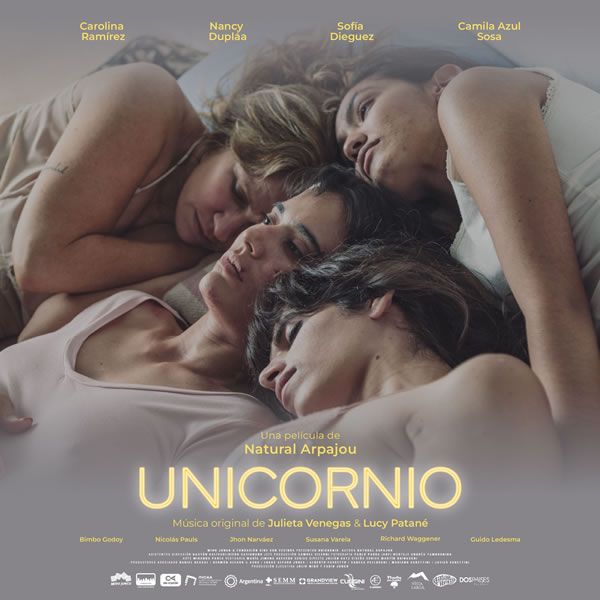
- How much of each of these five characters, including the narrator, have elements of Natural?
What a great question to start with! They all have a bit of me in them. I believe that all people who make movies, in some way, speak about themselves. I am not a trans girl, nor a Colombian immigrant, nor a 53-year-old woman with a lover, nor a 17-year-old girl who has just fallen in love. But perhaps at some point, I went through many of these things. I have been Nancy [Duplaá]'s character, crying over a terrible love, like a fool, and I am very much like Carolina [Ramírez]'s character because I protect my heart too much. I was also a bit like that girl who traveled at 17. I came to the capital city to work at the age of 16. Now, while the character of Sofia [Dieguez], who is the trans girl, is perhaps the most distant from me, what happened with her, especially during filming, was very intense.
- In what sense?
At one point, it seems like this character has relations with her boyfriend unintentionally, out of a sense of obligation. I've never experienced anything that extreme, but I have been in a relationship and felt like one has certain obligations and felt strange in that situation. Nowadays, I believe that women are saying more than just "no means no," but also "if I don't want to, I don't want to," for real.
- How much of each actress was incorporated into their characters?
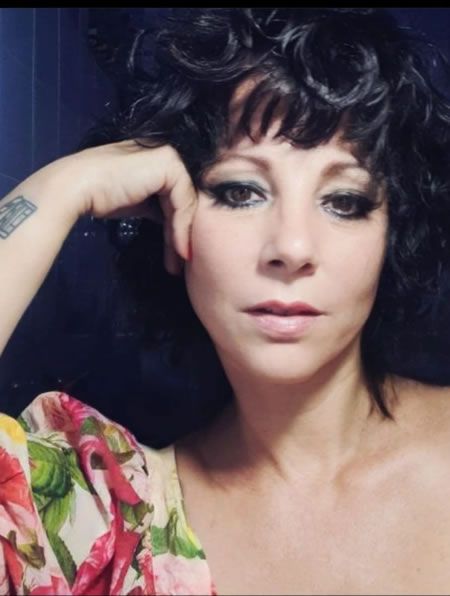
Nancy is the one who identifies the most with her character out of all of them. I had worked with Sofia in 'Libre,' and her character was initially somewhat cliché about what a trans girl is. As we became friends, I started to understand the intimacy and began to change it. While it's not her story, I changed things that I found more interesting firsthand, things that she experienced in relationships, with partners, with love, with her body. So, she has a closer connection to the character. Carolina's character was written specifically for her because Carolina Ramírez is like that, and I wrote it knowing her as a friend. It doesn't mean she is the character by any means, but she has an energy that sets certain boundaries. I rewrote Sofia's character, and I wrote Nancy's character for her because I felt she could do it.
- The movie is titled 'Unicornio,' a word with many symbolic meanings for women and the LGBTQ+ community. What does the title mean for the film?
Well, in reality, I discovered all those meanings after choosing the name, because it had more to do with the phrase 'love doesn't exist,' that love is a unicorn, a fantasy. I began to research, and, well, there is the unicorn, and it's called a narwhal. I didn't know that, so I added it at the end, saying, yes, love does exist, but it's like a unicorn, not the idyllic figure we have from fairy tales; it can take another form, like the narwhal, which is a different kind of unicorn, but it exists.
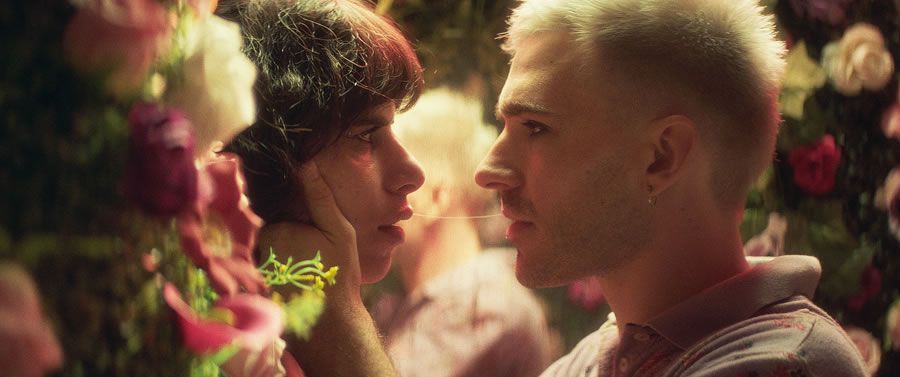
- There's a word that's used a lot now, and it's 'sorority.' Beyond the theme of love, do you think the film revolves around that idea?
Yes, I do. Love has many facets; there's romantic love for a partner, love for family, and love for friends, which I think is one of the most 'unicorn' kinds of love because you choose your friends. With romantic love, there are often many things surrounding it, a lot of suffering or discord. On the other hand, with friends, there's no pressure, something that allows us to be more ourselves. Women tend to form communities, to stick together, which is a word I like a lot, to gather and go through life. I started writing this film before the pandemic and finished it after all that. During that time, I appreciated all the help I experienced in the neighborhoods where I move, helping each other survive the pandemic and loneliness. We talked among friends about things that were happening to us professionally and emotionally. At the movie premiere, we would hold onto each other in the theater during the intense moments, without planning it; it was like that sense of holding onto another woman and taking care of her. I think this film implicitly embodies that sense of sorority.
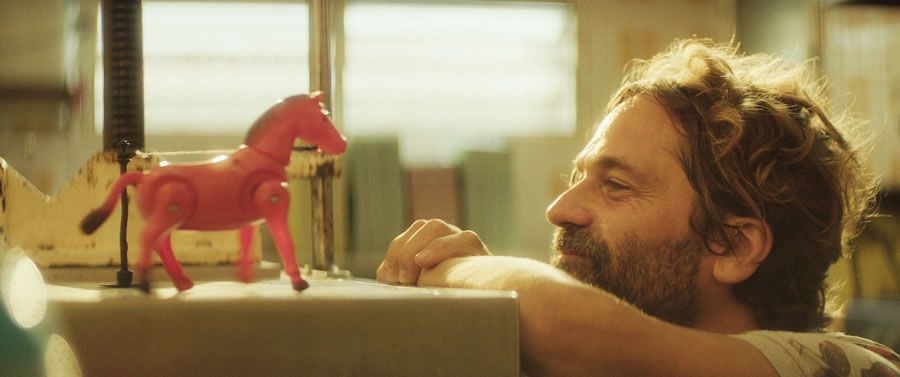
- In 'Unicornio,' there are female and feminist perspectives, but it doesn't attack men. Was this intentional?
Feminism is often associated with being combative. I am a staunch feminist, but I adore men, and yes, this is not a critique of men. In fact, they are also enjoying the film a lot, which is something very nice for me. 'Unicornio' is not a combative feminist film that says 'down with men.' None of that, and fortunately, we were able to make it this way. You remind me of something that the press and people who have already seen it have said, which is that the film is very feminine and feminist, in the sense that machismo prevents people like the character played by Nicolás Pauls, who is Sofia's boyfriend, from fully expressing their love due to social reasons, because they are not allowed to.
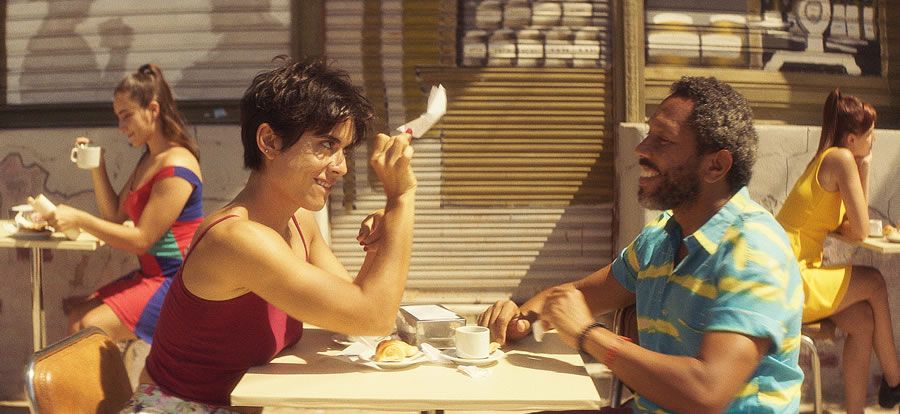
- In that sense, you have a respectful and empathetic view of your male characters. Let's talk about them.
The two male characters are a bit more complex due to the pressure to love family or a certain way, or to love a specific person, or to be unable to love as they want, or to love but love in a way that hurts the other person. So, in that sense, it is very feminist, but none of the men are bad; they are also victims to some extent, and I found that very beautiful.
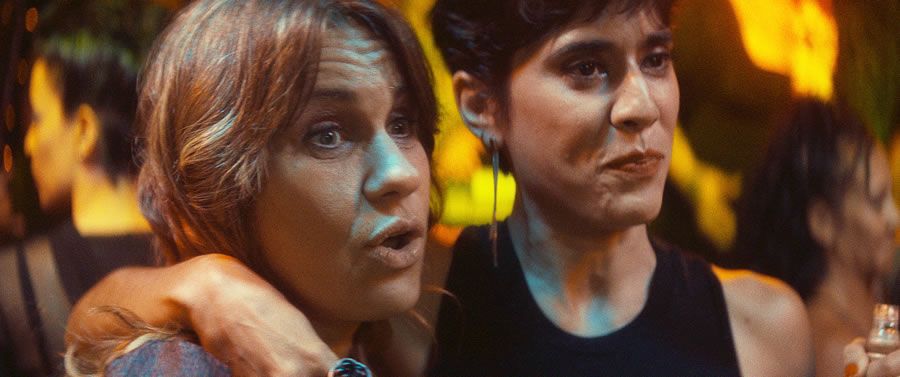
- This film has something particular about it; besides being multi-genre, it plays with the codes of a musical. Part of the story is told through songs. Let's talk about its style and tone.
I haven't been so aware of this, but in all my films, both the two feature films and the four short films, there are always moments where people sing and dance. For me, that's very important, and these scenes are generally crucial in the film. On the other hand, I write with music. In fact, when I started writing this, I was listening to Mon Laferte, and that's how I came up with the character who does nails. For me, music and cinema are ways to communicate, and both have allowed me to dialogue with other people. For this film, I thought of Julieta Venegas because her music is bittersweet, and my film has a bit of that; people laugh and cry. When I met her and she started making the music, I discovered that the lyrics were closely related to the story, and everything was very interconnected. She suggested Pilar Hernández [choreographer] to create a tango because we wanted Carolina's character to dance it, reflecting the moment she was going through. We searched for music that would resonate with the characters at that moment, adding another layer to it, and having them sing is also a way to express themselves. Furthermore, the ending is a form of liberation because the stories don't end, and I don't mean that the film has an open ending, because they all have a conclusion, but in the sense that life continues for them, so let's sing. The song at the end of the credits says that if there are words that help you live, sing them, which means that life goes on.
- Speaking of liberation, how much freedom did the actresses have in their dialogues?
Don't ask me about this. I'm a screenwriter! (laughs). None at all! But with the Colombians, I allowed some leeway. They had a bit more freedom to change words because of the idioms they have and such. But my films are like this: first the script, then the actresses' performance and everything around them, and then the camera. The camera is more of an observer of all that. The script is very important to me. In fact, Carolina and Nancy, who come from television, tended to fill in the blanks with words, and I told them, 'Girls, no. Don't explain the movie; I explain the movie.' In general, they couldn't improvise anything. What seems natural is because the relationship is rehearsed, and the texts are spoken and edited in a way to make it appear that way.
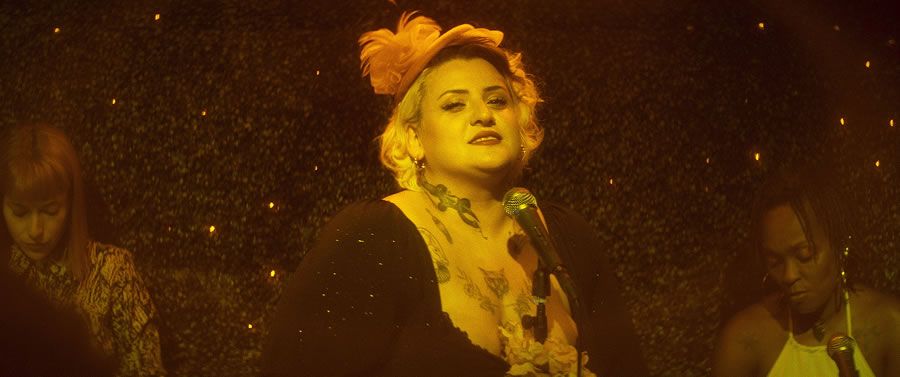
- Well, you are a dog lover, like me, and your dogs appear in the film (laughs).
(Laughs) Yes, Nina and Coco. I pick up street dogs here; I don't have a shelter or anything, but I pick them up, bathe them, groom them, and give them away. If it were up to me, I would take dogs absolutely everywhere, so I took advantage of it in the film (laughs). There's a scene that doesn't really fit with the rest of the story, but a person enters a store with a dog, and they talk about how the world would be a better place if they allowed dogs everywhere. For me, they are very loving beings, and the idea of a pack also came from them. The concept of a pack that the actresses offer comes from my dogs, and that's where the poster image comes from.
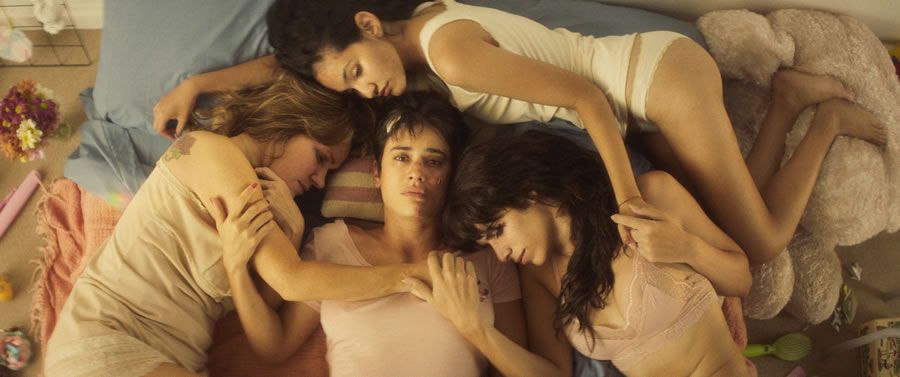
- How did the Colombian actors Carolina Ramírez and Jhon Narváez come to be in the film?
I don't know if it's a coincidence, but I'm starting to believe more in things happening for a reason. I first met Carolina thanks to my first film ['Yo, niña'], when it competed in Málaga, and we exchanged phone numbers. During the pandemic, I started giving free online screenwriting classes to help the world during that time, and Carolina joined the classes. One day, she talked about 'Reina Flow.' She explained that it was a series, I looked it up, and I devoured it during that time. I told her, 'Let's work together.' The following year, she moved to Argentina, and things started falling into place. I found Jhon through a casting director (Ana Isabel Velásquez). Something beautiful happened with him: when I sent him the script, after reading it, he said, 'Thank you for offering a black person a role as a good person. You're giving me the role of the man all men would like to be.' He's a great actor, a great human being, a beautiful person, very sweet, and he gave his all in the scenes. He was the ideal partner for Carolina.
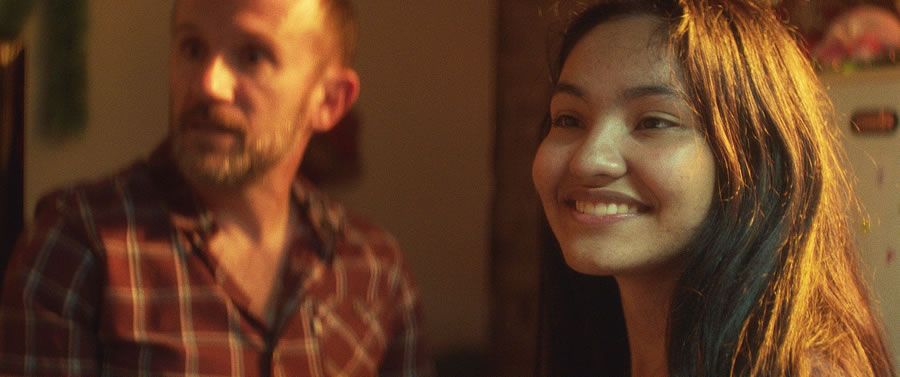
- To wrap it up, how difficult was it to get Julieta Venegas and Lucía Patiné for the soundtrack and a song from Aterciopelados?
You know, I'm a steamroller (laughs). I wanted to work with Julieta Venegas, and I started asking for her contact information, which I managed to get. I sent her the script, and she responded that she wanted to do it. It was that easy. The same happened with Aterciopelados, whose song is very important in the film. Lucy Patiné is the one who composed the song that Bimbo sings, the show's hostess. Julieta recommended her because she had asked for her as an arranger for her songs, and of course, she's so talented that she composed the rest of the music herself. I think the key is that people often trust me because I openly ask for what I need, and I'm as natural as possible. Besides, all artists have a lot going on, but they also want to be part of other packs and collaborate in these types of expressions. It's not always about money or whether they are famous or not. I think it's about approaching a human being, offering them a project, and when the projects are honest, they can accept it.
<< Go to Spanish version
